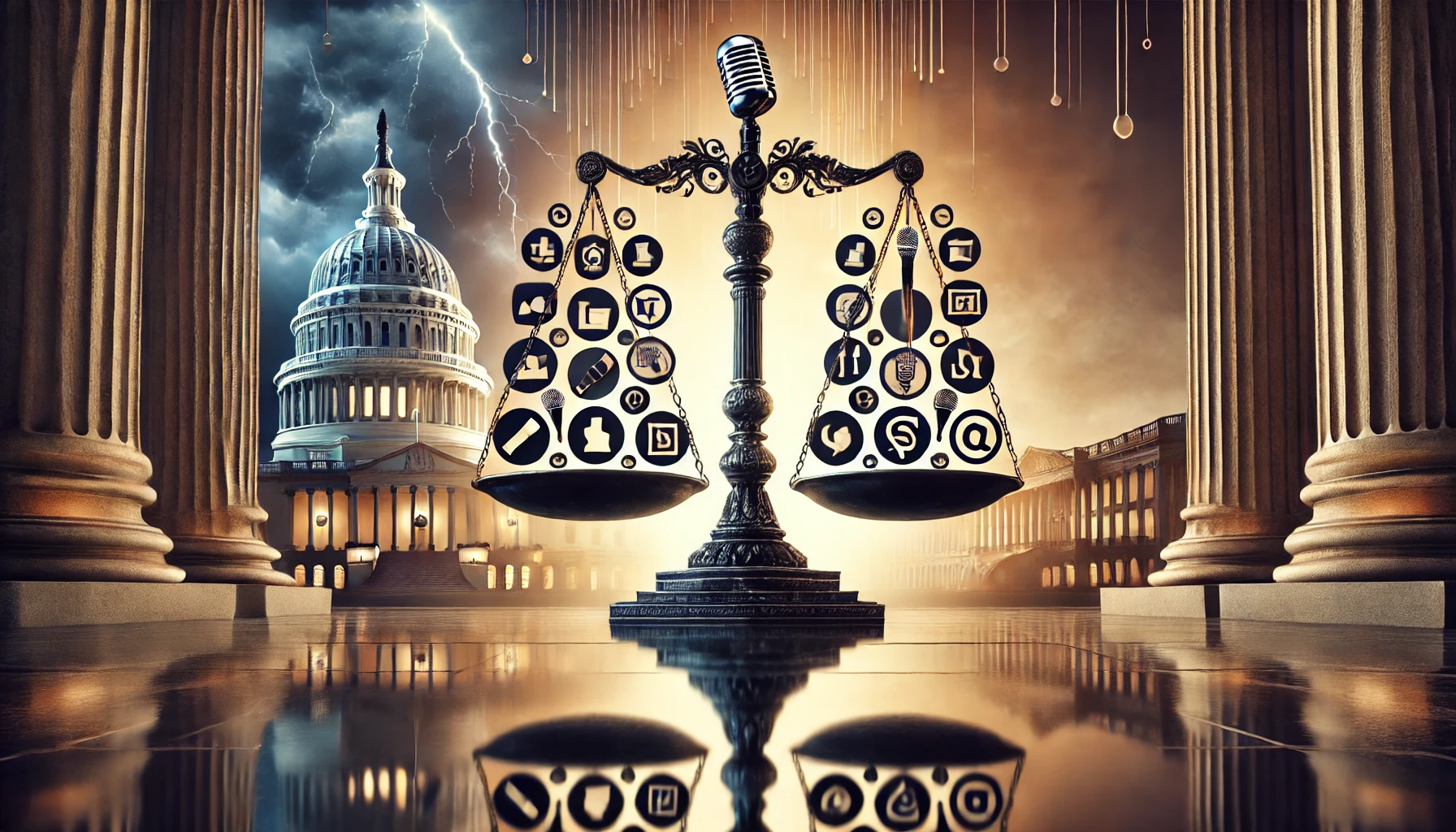A Tale of Two Pardons: Trump, Hunter Biden, and the Fight for Free Speech in a Censored Era
The political stage in America is ablaze, and the latest act is a spectacle of two pardons that couldn’t be more different. On one side, President Joe Biden shields his son Hunter with a controversial pardon that reeks of corruption. On the other, former President Donald Trump suggests a sweeping pardon for all January 6 prisoners—a move that underscores the glaring hypocrisy in the American justice system. But this isn’t just about Hunter or J6. At the heart of it all lies a broader battle: free speech, institutional integrity, and the unchecked power of Big Tech to control the narrative.
The Fall and Resurgence of Parler: A Microcosm of the Fight for Free Speech
Before diving into the injustices of these two pardons, it’s essential to understand the story of Parler—a platform once obliterated by Big Tech is now emerging as a symbol of resilience. Following Parler’s label of a “hub for extremists” after January 6, Parler was deplatformed by Apple, Google, and Amazon. The message from the tech giants was unmistakable. Challenge the narrative, and you’ll be silenced.
It has recently come to light that the social media platform had assisted law enforcement in preventing violence. The attack on Parler wasn’t about public safety—it was about consolidating control over discourse. This sets the stage for a broader examination of how Big Tech’s actions intertwine with political maneuvers like the pardons of Hunter Biden and the proposed clemency for January 6 participants.
Justice for All—or Just for Some?
The events of January sixth remain a flashpoint in American politics. Hundreds of participants were prosecuted, but cracks in the legal proceedings have emerged. Federal judges have dismissed certain charges, pointing to improper use of laws designed for obstructing official functions.
This isn’t a defense of violence but a critique of a justice system that appears politically manipulated. Trump’s proposed pardon for J6 defendants is not just about policy—it’s a statement against what he and many others view as the unequal application of justice.
Compare this with Biden’s pardon of Hunter, which many see as an attempt to shield his son from years of corruption allegations. It exemplifies a system perceived to operate under two sets of rules where there is one for the elite and another for everyone else.
Big Tech’s Role in Shaping the Narrative
Parler’s story is inalienable from the larger narrative. That of Big Tech’s control over public discourse. In the wake of January 6, platforms like Twitter and Facebook shaped the narrative by amplifying selective viewpoints while silencing others. As a platform that deviated from the dominant narrative, Parler was targeted as a scapegoat. Illustrating the consequences of such divergence.
By deplatforming Parler, Big Tech sent a chilling message: dissent would not be tolerated. This wasn’t just censorship—it was a strategic move to consolidate control. Legacy media played along, justifying these actions and downplaying their broader implications for free speech.
Independent Media Fights Back
The rise of independent media represents a critical shift. Americans seeking unfiltered information find platforms like Rumble, Substack, and a newly revitalized Parler indispensable. These platforms have shed light on issues legacy media ignores—like questionable prosecutions of J6 participants and the deliberate targeting of dissenting voices.
This shift reflects growing public distrust in institutions that have abandoned objectivity. Figures like Joe Rogan and outlets on independent platforms now command larger audiences than many traditional networks, proving that Americans crave authenticity and alternative perspectives.
Implications of The 2024 Election Results
The 2024 election has concluded. Donald Trump has secured his return to the White House. A victory marked by significant gains in battleground states and among diverse voter demographics. Possibly signaling a shift in the political landscape. Trump’s campaign capitalized on economic concerns and a desire for change which resonated with voters across the nation.
In contrast Kamala Harris’s campaign faced challenges. Which included internal divisions and a failure to connect with key voter bases. The election outcome reflects a broader dissatisfaction with the establishment and a demand for new leadership.
Coinciding with Parler’s recent growth points to a public yearning for platforms that promote free speech and oppose censorship. Traditional media and Big Tech face more and more scrutiny by the day for their roles in shaping political narratives. This is likely why alternative platforms like Parler offer spaces for diverse voices and unfiltered discourse.
What Parler’s Comeback Means for the Bigger Picture
The rise, fall, and return of Parler encapsulate the struggle for free speech. Its story highlights the risks of challenging entrenched power but also underscores the enduring demand for platforms that prioritize truth and transparency.
Despite the challenges of digital authoritarianism, Parler’s rebranding and growth demonstrate resilience. It’s more than just a platform—it’s a symbol of resistance against censorship and a reminder of the importance of alternative spaces in the digital age.
What Happens Next?
The tide is turning. With the election concluded, Americans demand accountability from their leaders and institutions. The enduring power of truth is evident in the success of platforms like Parler, Rumble, and Substack, despite efforts to suppress it.
This story isn’t simply about Hunter Biden or January 6; it’s a struggle to restore the principles that form the foundation of American democracy. The battle for justice, free speech, and institutional integrity is far from over, and the stakes couldn’t be higher.
Disclaimer:
This article is for informational purposes only and does not constitute financial, legal, or professional advice. The information provided is based on current knowledge and understanding, and while we strive for accuracy, we make no guarantees regarding its completeness or applicability. Parler assumes no responsibility for any actions taken based on this information. For specific advice, please consult a qualified professional.

